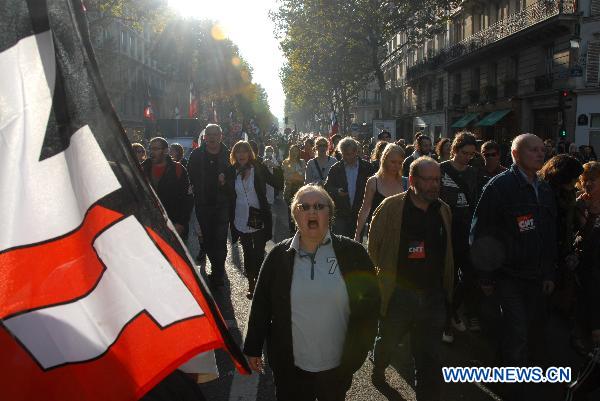Further action promised as France hit by pension reform protests
Millions of French people took to the streets Tuesday for the fourth major wave of protests in a month over the government's pension reform and opponents have promised more is to come.
 |
|
Protesters walk near the Bastille Square to protest against President Nicolas Sarkozy's plan to raise the retirement age up to 62 in Paris, France, Oct. 12, 2010. [Xinhua/Zhang Yina] |
Following general strikes in railways, airports, schools, docks and postal systems, the earliest of which kicked off late Monday, French public transport, especially for core cities such as Paris, was heavily hit.
Half of the flights scheduled to and from the Paris Orly airport and one in three at the Charles de Gaulle and Paris Beauvais airports were cancelled.
The walkout reduced train traffic, with only one in three high-speed TGV trains running.
Although international services operated with higher frequency, the Paris metro had a limited service.
Eight of the country's 12 refineries joined the protest for the first time amid growing threats of fuel shortages in southeastern France.
Preliminary figures indicated an increase in the numbers taking action in the new mobilization in most French major cities. Unions even vowed rolling strikes to hold back the reform.
Paris police said 65,000 people joined a street protest starting around the noon, more than the 40,000 in a previous demonstration on Sept. 23, but trade unions said the Paris rally attracted 330,000 people.
In the afternoon, many other major cities, such as Marseille, Grenoble, Rennes and Lyon, reported tens of thousands of protesters on the streets, with many estimating the numbers were up on the September protests.
 0
0 






